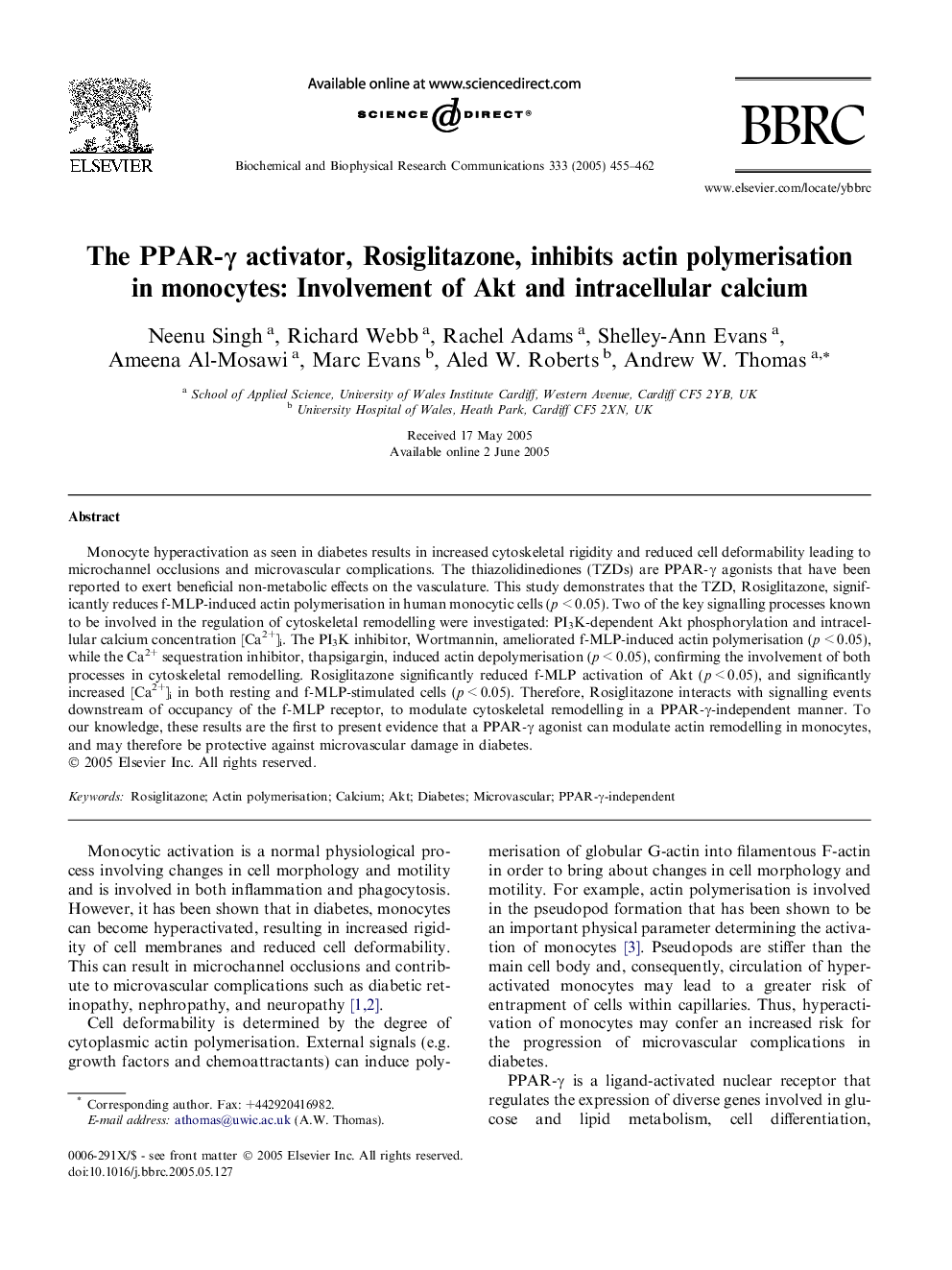| Article ID | Journal | Published Year | Pages | File Type |
|---|---|---|---|---|
| 10770076 | Biochemical and Biophysical Research Communications | 2005 | 8 Pages |
Abstract
Monocyte hyperactivation as seen in diabetes results in increased cytoskeletal rigidity and reduced cell deformability leading to microchannel occlusions and microvascular complications. The thiazolidinediones (TZDs) are PPAR-γ agonists that have been reported to exert beneficial non-metabolic effects on the vasculature. This study demonstrates that the TZD, Rosiglitazone, significantly reduces f-MLP-induced actin polymerisation in human monocytic cells (p < 0.05). Two of the key signalling processes known to be involved in the regulation of cytoskeletal remodelling were investigated: PI3K-dependent Akt phosphorylation and intracellular calcium concentration [Ca2+]i. The PI3K inhibitor, Wortmannin, ameliorated f-MLP-induced actin polymerisation (p < 0.05), while the Ca2+ sequestration inhibitor, thapsigargin, induced actin depolymerisation (p < 0.05), confirming the involvement of both processes in cytoskeletal remodelling. Rosiglitazone significantly reduced f-MLP activation of Akt (p < 0.05), and significantly increased [Ca2+]i in both resting and f-MLP-stimulated cells (p < 0.05). Therefore, Rosiglitazone interacts with signalling events downstream of occupancy of the f-MLP receptor, to modulate cytoskeletal remodelling in a PPAR-γ-independent manner. To our knowledge, these results are the first to present evidence that a PPAR-γ agonist can modulate actin remodelling in monocytes, and may therefore be protective against microvascular damage in diabetes.
Related Topics
Life Sciences
Biochemistry, Genetics and Molecular Biology
Biochemistry
Authors
Neenu Singh, Richard Webb, Rachel Adams, Shelley-Ann Evans, Ameena Al-Mosawi, Marc Evans, Aled W. Roberts, Andrew W. Thomas,
